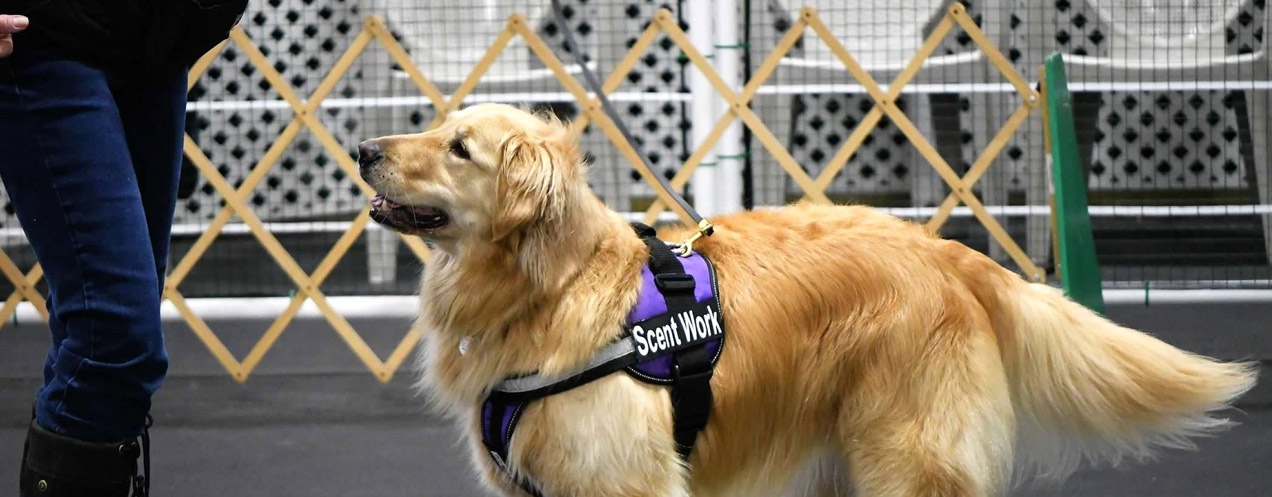What We Do
How Our Dogs Do What They Do – What is a Bio-Dog?
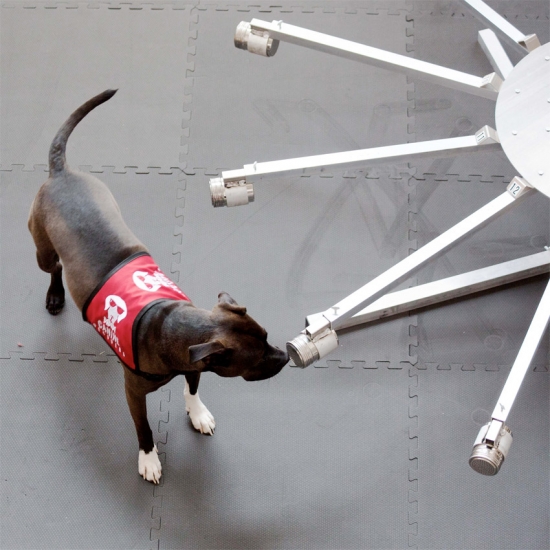
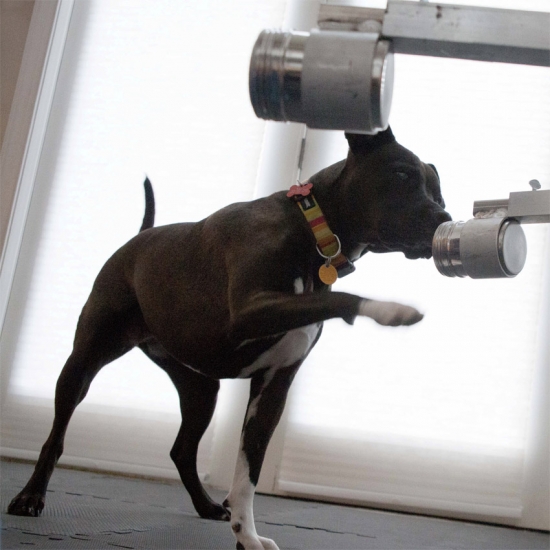
A Bio-Dog is a dog that is rigorously trained using scientific principles to detect biological substances. They can particularly be trained to detect a variety of diseases.
Dogs are able to smell odors in multiple layers. They are capable of separating smells from one another and identify each scent individually. Their sorting capabilities are what makes them so brilliant in finding drugs, bombs, lost children, and saving lives in medical detection.
Numerous studies have shown there is a distinct smell in many diseases. For example, a bio-dog can accurately discriminate cancer odors from other smells by sniffing patient breath samples. Contained within those scent layer prints, are groups of odorous molecules that play a part in cell growth, how rapidly they grow and how cells are defined. A dog can reliably be trained to detect the layered molecule prints. We know they can accurately detect common odors contained within different types of cancer. However, since a dog can’t talk, we are uncertain what the dog is detecting specifically. Scientists however, are making strides in discovering exactly what those ingredient compounds consist of and marvel at a dog’s unique abilities, that for the time being still outshines modern technology.
The four stages of any good screening study include design, conduct, data analysis, communication and implementation. We cover these factors by designing stringent, detailed protocols every step of the way.
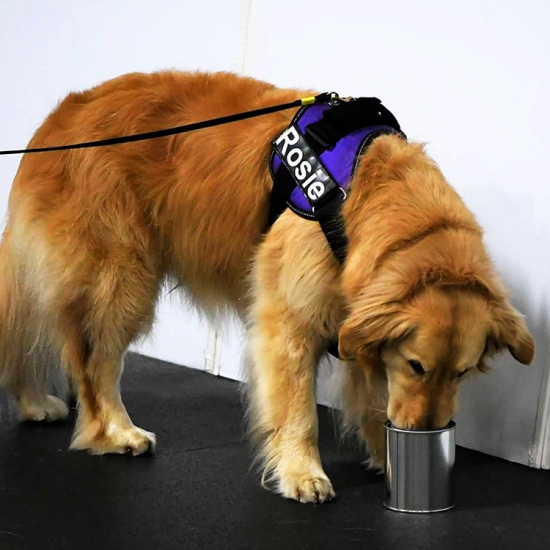
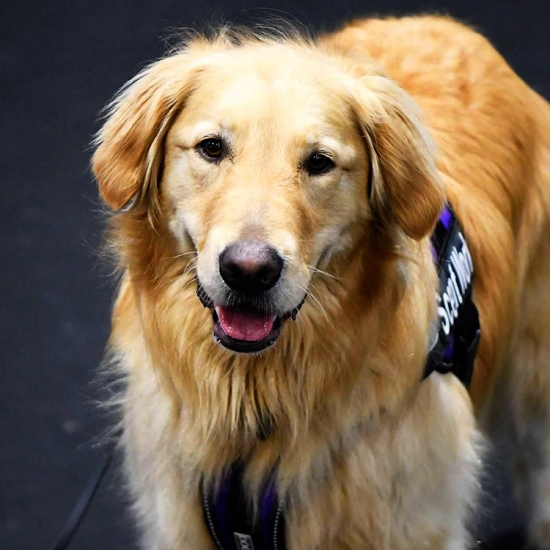
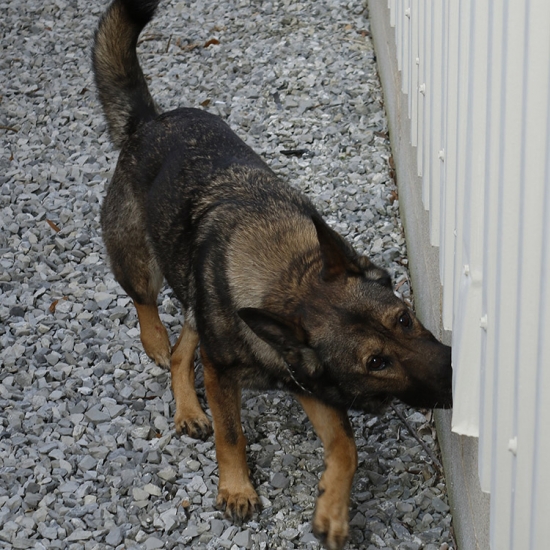
Training a Bio-dog: A Brief Overview
There are numerous considerations in training a dog to detect a specific odor, particularly when it comes to a complex illness. Methods may differ somewhat depending on the disease, sample collection and the odor we want them to detect.
After finding the right dog and handler, our process takes many months of rigorous training based on scientific learning theory. Our dogs and handlers must repeatedly demonstrate that they are consistently reliable and accurate in double-blind trials before moving on to the fully blinded screening program. A dog can be trained to detect any odor. In the case of complex illnesses, there are factors and project variables that need to be accounted for with rigorous behavioral, training, scientific, legal and bio-ethical steps.
Numerous samples are critical in developing and maintaining accuracy. Before beginning a general screening program, a dog must be trained on a very large number of samples. In the case of cancer, a dog needs to be exposed to hundreds of cancer samples of various types and stages.
During training, we compare healthy breath samples with known cancer, as well as other disease control samples. We conduct multiple trials using multiple dogs. We also assure double blind accuracy by using two individuals – a Dog Handler and a Trial Manager. Samples are not reused for training or for determining accuracy. After hundreds of repetitions and employing these methods, bio-dogs learn to generalize and not memorize the odor print of cancer.
They do not come in contact with an actual person, but only screened samples collected from breath, saliva, urine, plasma or tissue.
This process of collecting and maintaining a large “library” of samples is critical in ensuring accuracy and reliability. For this, we depend on our generous Breath Sample Donors.
After Training: Our Screening Program
Once fully trained on hundreds of samples, our highly skilled bio-dogs graduate to our Screening Program. The Program is a fully blinded process. That means that neither the Handler, nor Trial Manager knows which samples contain cancer. Multiple dogs and Screening Runs are conducted for each sample. The dogs indicate whether a sample is positive and contains an anomaly or not. Should our dogs detect an abnormality, we recommend that the Donor contact their doctor to develop a treatment plan. Dogs have reliably proven they can often detect illnesses earlier than conventional clinical screening methods.
All our data is recorded in a database coded digitally and encrypted for privacy. Neither the Handlers nor Trial Managers know who the donors are.
We are humbled and extremely grateful to our Donors who are participating in this exciting new venture in Canine Biomedical Screening. We’d be honored if you would join us. Cancer is a horrific disease that affects all of us in different ways. We need as many forces working together as possible.
Please visit our Research Section for many studies that have proven a dog’s reliability in detecting disease.
